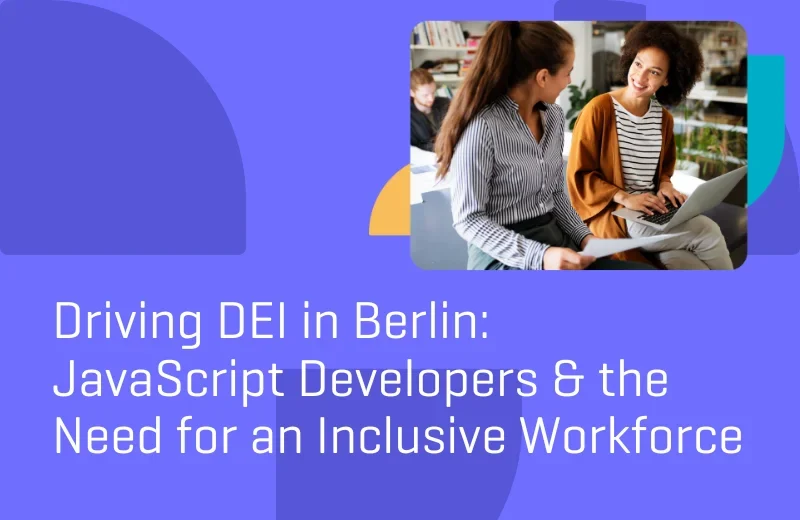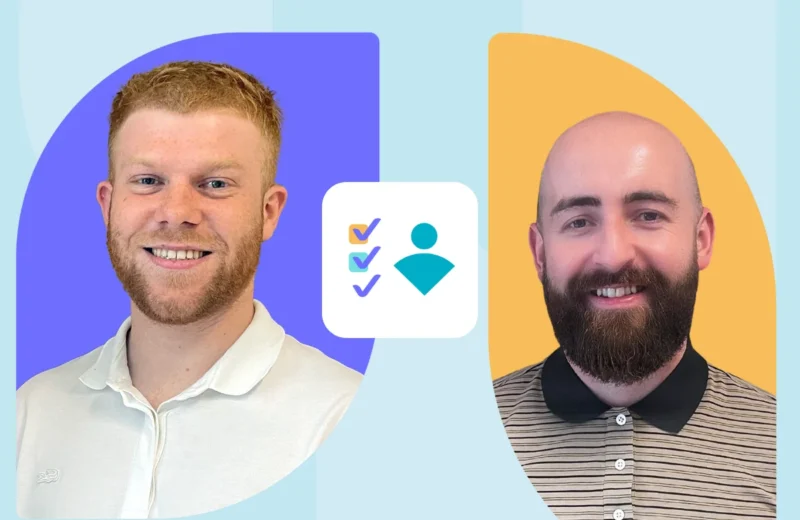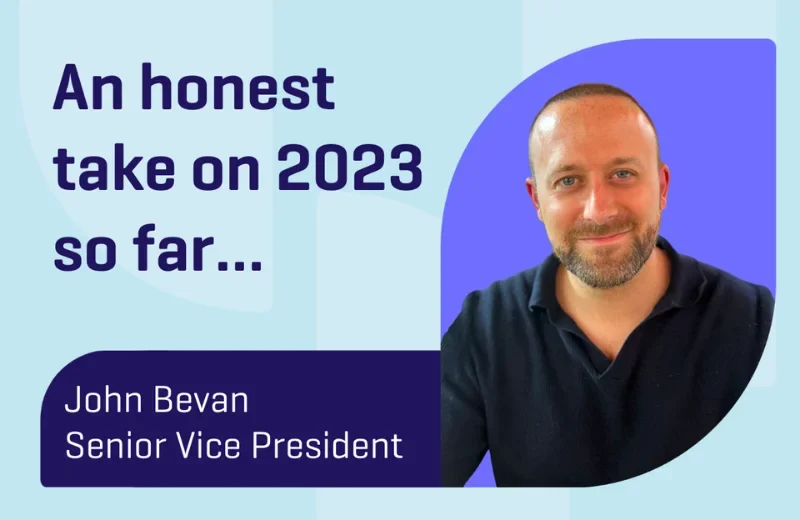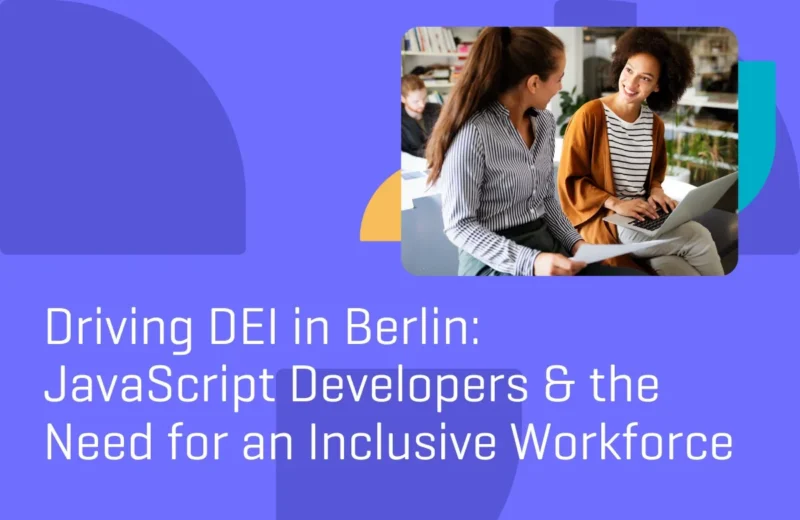Danielle is an experienced Data Manager at a leading Trademark, Brand and Content Protection Solutions Provider. With a background in Data Processing, and translating business requirements into Data-Driven insights, Danielle has a strong understanding of the current technological landscape, and a strong belief in the value of transferring knowledge. Being born and raised in South Africa before moving to the Netherlands gave Danielle a unique perspective on the differences in data usage and implementation, and provided some great insights for Day to Data!
Data Strategy & Implementation
What are the key pillars of an effective, scalable data strategy?
Danielle: “Firstly, understanding the industry that you are in. Because data from, let’s say, a travel business is completely different from data in a car industry. Before joining my current company, I had a data and technical background, but I didn’t have any knowledge in the trademark sector. Data doesn’t mean anything if you don’t really understand what you’re looking at. That’s my first thing. Also, it’s about data being collected and kept correctly. Regions like the UK, the United States and the European Union are quite good at keeping data, whereas I am originally from South Africa and data was at times published incorrectly or is more difficult to come by in a frequent manner, so you need to understand your data and do enrichment where necessary.”
What common mistakes do companies make in data implementation, and how can they avoid them?
Danielle: “Mistakes are sometimes made in the original publications itself and not necessarily by your company. A key mistake companies make is not analyzing and enriching their data properly before pushing it to customers. And also not making it available in a timely manner. Especially in industries like legal, clients expect precision. If you don’t process and validate the data correctly, they’ll notice, and it can undermine trust.”
How do you balance data ownership and governance while ensuring business agility?
Danielle: “We try to have multiple checkpoints. We use tools like AI for enrichment, but we also have manual enrichment where employees physically check the data. That said, manual enrichment also introduces room for human error. So, it’s a balance—use AI to process and humans to verify. It’s about layering quality control.”
What’s your approach to maintaining data quality and trust in AI-driven analytics?
Danielle: “It’s all about checking, verifying and “training” the model. We have certain ‘obvious’ tracking mechanisms—like in trademarks, you can’t have an expiration date before an application date. These logic checks help us catch errors. AI is helpful here too, but we still need manual verification because AI can misinterpret things since it is still fairly new.”
Acceleration & Efficiency
What are the biggest blockers to data transformation speed, and how can they be overcome?
Danielle: “Cost is one. Another is legacy systems—companies hold on to outdated systems because they’re comfortable with them. Changing a system that’s been in place for 15 years is daunting. There’s also leadership reluctance. Many executives are from a different generation and understandably don’t fully trust AI or cloud technology yet. The best way to overcome this is by showing concrete proof that change works.”
How are cloud-native and serverless reshaping data efficiency and cost?
Danielle: “I think it’s definitely more efficient and cost-effective in the long run. Having physical servers means paying for space, maintenance, and electricity. Plus, in countries like South Africa or India, where power outages are more common, cloud services prevent business disruptions. It just makes sense to move to cloud.”
What’s the best way to drive data literacy and adoption across an organization?
Danielle: “That’s a tough one. Even within data-driven companies, people often don’t realize the importance of high-quality data. Many don’t care about data until something goes wrong—like a security breach. I think awareness will increase over time as people experience the consequences of poor data handling firsthand.”
"AI should be embedded into workflows that actually matter."
AI & Value Creation
How do you ensure AI investments create real business value rather than just hype?
Danielle: “Start small. Test AI in one area and see how it performs. At my current company, we tested AI to recognize images, and we saw immediate results. If you try to do too much at once, you might waste money on AI that doesn’t actually fit your needs. Scaling up from proven successes is the best way to ensure AI adds value.”
What are the biggest ethical risks in AI, and how should companies address them?
Danielle: “AI is only as good as the data it’s trained on. If your training data has biases, your AI will too. The biggest risk is over-reliance—people assume AI is always right, but it’s not. Not yet at least. Companies need to monitor and refine AI continuously. Maybe in the future, AI will completely rule the world, but for now, not entirely just yet”
How can businesses embed AI into core operations instead of treating it as a side project?
Danielle: “AI should be embedded into workflows that actually matter. For example, in trademarks, AI can quickly flag potential conflicts and reduce processing time accross teams. If AI helps customers achieve faster and more accurate results, it won’t feel like a ‘side project’—it’ll be essential.”
How do you see LLMs and generative AI reshaping traditional analytics?
Danielle: “They speed up analysis and decision-making. In legal processes, AI can quickly identify potential conflicts, helping clients act faster. But again, human oversight is still needed and beneficial. AI should assist, not replace, critical thinking.”
"The key is to take knowledge from wherever you can to grow and become your best version."
Leadership & Vision
As a female leader in tech, what unique challenges or perspectives have you gained?
Danielle: “One challenge is being one of the only women in the room. But honestly, a bigger challenge has been internalized and overcoming the conservative upbringing where women weren’t expected to take leadership roles. The other thing is that previously, women didn’t always support each other, which is busy changing for the better. I’ve found men in leadership to be quite supportive. It’s about finding the right allies, and encourage women supporting women.”
What advice do you have for aspiring leaders in AI and data transformation?
Danielle: “Find women who support women. There are plenty out there—you just have to connect with them and take the opportunity to help each other grow. Also, don’t be afraid to learn from male colleagues. The key is to take knowledge from wherever you can to grow and become your best version.”
What’s the next big shift in AI and data strategy over the next five years?
Danielle: “AI will become a standard part of business operations, not just an add-on. Companies that embrace it early will gain a competitive edge. We’re moving toward a world where AI supports decision-making at every level.”
Want to discuss this further?
Our community is at the heart of industry innovation, transformation and progress. We’re here to talk about it.
















